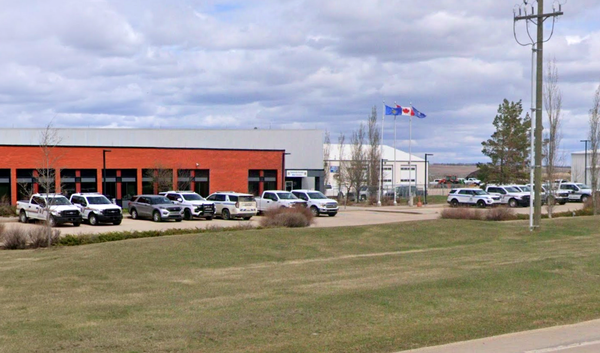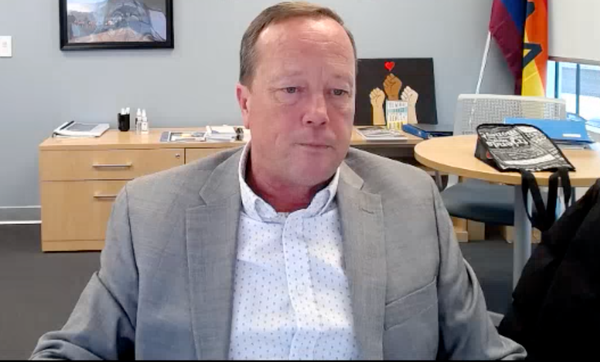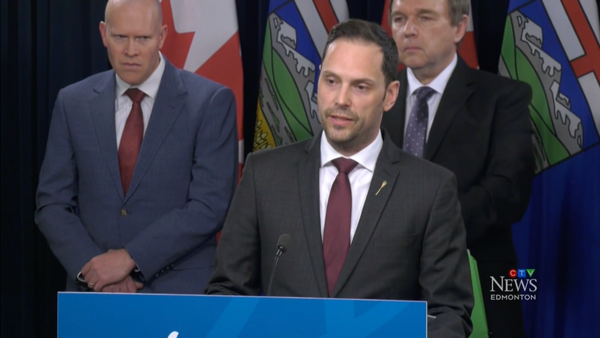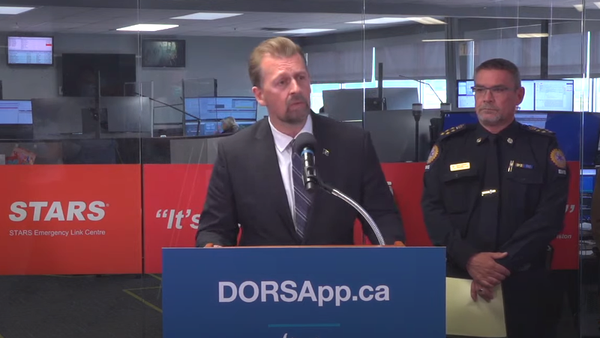Court finds DULF guilty for compassion club "heralded as success"
Convictions are on hold as the compassion club founders prepare for a Charter challenge to begin on November 24.
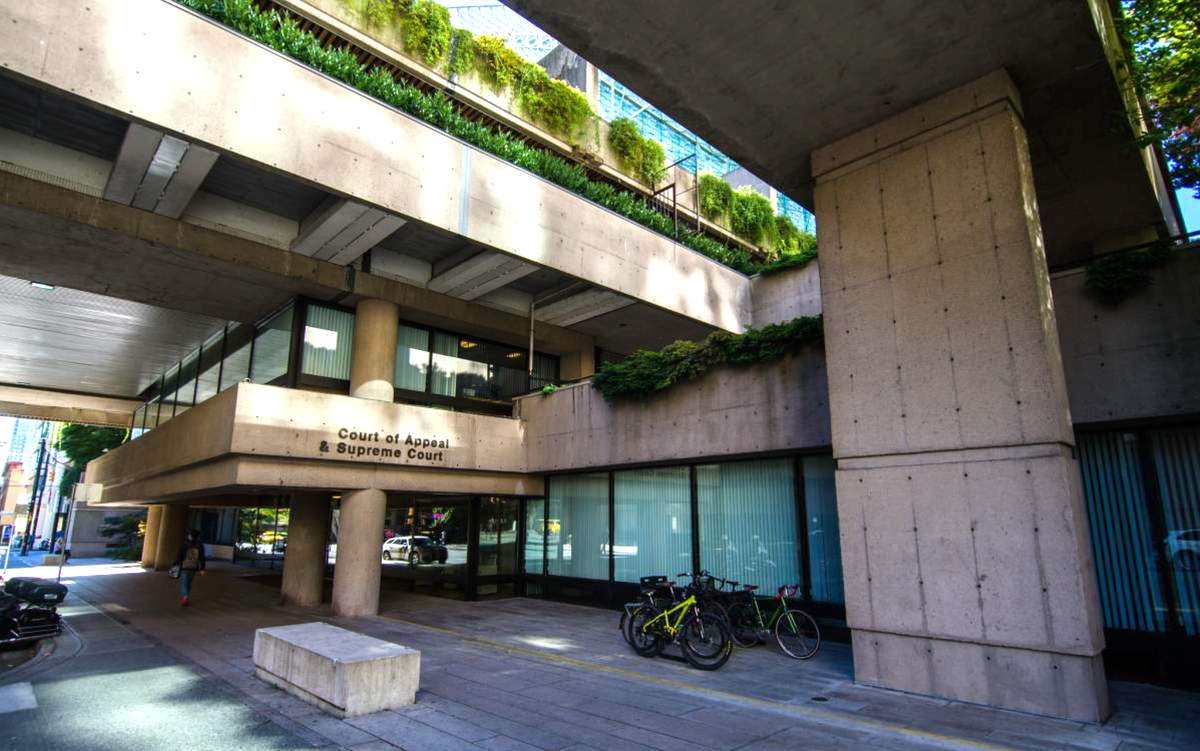
By An Pyatt and Tyson Singh Kelsall ਟਾਈਸਨ ਸਿੰਘ
On Friday, the co-founders of the Drug User Liberation Front compassion club, Eris Nyx and Jeremy Kalicum, were found guilty by BC Supreme Court Justice Catherine Murray on three counts of possession for the purpose of trafficking under the Controlled Drugs and Substances Act.
Justice Murray ordered that Nyx and Kalicum’s convictions be held in abeyance pending the results of DULF’s Charter challenge to the CDSA charges, which begins on November 24. In effect, this means Nyx and Kalicum’s convictions are stayed until the challenge is heard.
Justice Murray repeated several times that Nyx and Kalicum’s intent was clear: they sought to save people’s lives in the face of a public health emergency.
“There is no question that their intentions were – and are – good. They wanted to save lives," Justice Murray said, raising serious questions about whether these charges will stand up to the Charter. The Charter sections being used in the challenge include section 7, which upholds the right to life, liberty and security of the person, and section 15, which protects equality interests.
In her ruling, Justice Murray took the Crown’s position that DULF’s exemption for an urgent public health needs site (UPHNS) covered the possession of drugs onsite, but not their procurement and distribution, even if the intent of the distribution was community protection.
DULF openly declared before, during and after its formal operation from August 2022 until the October 2023 raids that they were procuring drugs from the dark web, testing them at gold-standard laboratories, and providing these regulated drugs at cost to 43 pre-approved compassion club members (some sources indicate 47 members), who already used drugs at the time of enrolment.
DULF applied to provide drugs from a legal source in 2021, but this application was rejected by the federal government after a year-long consideration.
According to documents obtained by Drug Data Decoded, from 2020 to 2023 the federal government convened an “Expert Advisory Group on Safer Supply,” comprising thirteen drug policy experts from across Canada. When Drug Data Decoded tried to obtain its final report through an access to information request, Health Canada redacted the document on the grounds that it constituted ‘advice from officials’ and could be ‘injurious to federal-provincial affairs.’
Throughout the trial, DULF’s lawyers demonstrated that the compassion club had social license to operate.

In her ruling, Justice Murray emphasized the support provided by the region’s medical health officer.
Also included in the evidence were phone calls and emails of support from Vancouver police, who later raided the club and arrested Kalicum and Nyx. Prior to giving her decision, Justice Murray read out VPD Sergeant Cheah’s claims that he did not know about the exemptions provided by Vancouver Coastal Health. Justice Murray also listed a number of reasons that Cheah’s claim may be improbable, including that the exemptions were mentioned in The Economist, and that it was posted up around the site his department raided.
But on Oct. 25, 2023, the Vancouver Police Department arrested Kalicum and Nyx, raided their homes and abruptly closed the club. The storefront had already been preparing to vacate the space six days later, after Vancouver Coastal Health ended the club’s lease following political pressure.
Justice Murray spoke candidly about the moral panic concocted around the DULF compassion club, reading out Pierre Pollievre’s statement that it was a “disgrace.” She singled out backbenchers in the provincial legislature, including former police officer Elenore Sturko, who was in attendance, for contributing to an “outcry.” Justice Murray also emphasized that DULF purchased drugs with donations, dispelling the politically fueled conspiracy that public funds had been allocated to this end.
Justice Murray expressed that while DULF provided life saving work, their exemption did not cover distribution to DULF's members, bringing a disappointing close to a case that has put the organizers’ lives on pause for over two years.
After the 2023 raids, the Canadian Drug Policy Coalition called the VPD raids “an act of political and moral cowardice.” Four Order of Canada recipients wrote that DULF had been operating under “tacit permission to demonstrate the inappropriateness of the criminal law,” while the VPD’s actions meant “people would die.”
Responding to the police raids that left them in peril, five DULF compassion club members wrote in support of Kalicum and Nyx. “We speak out in support of their actions with DULF, actions that opened up possibilities for us, for our community, and for drug users and people everywhere,” they stated.

Compassion club models
While small in scale, DULF’s compassion club demonstrated a tremendously impactful intervention into BC’s toxic drug crisis in reducing deaths and other social harms.
As Columbia University neuroscientist Carl Hart wrote in The Nation, “their goal was to prevent overdoses by making available drugs devoid of dangerous contaminants. And it worked.”
It is estimated that close to 54,000 people have died in Canada from opioid toxicity since 2016.
In BC alone, over 13,000 lives were lost between the declaration of a provincial public health emergency in April 2016 and September 2023.
Over half of these deaths involved fentanyl, a strong synthetic opioid more potent than heroin, and typically mixed with other ingredients and adulterants. Fentanyl is popular because of its potency and price, meaning a small amount can go a long way. More concentrated opioids such as fentanyl drive profit by making it easier for those along the supply chain to evade law enforcement.
Enrollment in DULF’s compassion club members was linked to decreased experiences of nonfatal overdose and a decrease in overdoses requiring naloxone, according to peer-reviewed research. No club member died during its year-long pilot study.
Various safe supply models across Canada have demonstrated positive outcomes. They have shown a capacity to reduce strain on parts of the healthcare systems that are poorly positioned to manage the toxic drug emergency, at a moment when emergency rooms and response systems are failing.
Justice Murray noted that during the October 2023 raids, drugs seized from the locked safe located in DULF storefront were found to contain no fentanyl, fentanyl analogues and/or benzodiazepines, indicating that the club was operating according to its stated premise of supplying tested and labeled cocaine, methamphetamine and heroin to its members.
Impacts of the unregulated drug supply are linked to the tragic loss of life, increased violence and harm associated with the drug market and supply, including gendered violence.
Ending a forever emergency
More than two years ago, Vancouver-based journalist V.S. Wells asked, “How can an emergency last this long?”
While DULF has shown a way out, morality and power continue to hold the emergency in place.
Compassion club trials to reduce the number of people dying of drug toxicity were endorsed by the BC government's expert Death Review Panel in 2023 and by the Office of the Provincial Health Officer in 2024. However, under David Eby’s leadership, the BC NDP rejected the Death Review Panel’s primary recommendation before it was announced, blindsiding the Chief Coroner at the time. The PHO’s recommendation was treated similarly.
Justice Catherine Murray acknowledged that “Mr. Kalicum and Ms. Nyx are agitators. They want to make change” during a time of inadequate government response, implying that direct community action was required to make a difference. Ms. Nyx and Mr. Kalicum openly and bravely put their lives on hold to address an overwhelming and debilitating public health issue, using the tools available to them.
A successful Charter challenge could result in DULF's charges being overturned. It could also lead to section 5(2) of the CDSA being struck down as unconstitutional. DULF will be back in court on November 24 to begin constitutional arguments.
To support DULF’s Charter challenge, consider donating to them directly here.
Don't miss coverage of the court case in The Tyee and Press Progress.
The complete written decision is available here:
Note: A separate administrative legal challenge to Health Canada’s decision to reject DULF and the Vancouver Area Network of Drug Users’ application to source, regulated and distribute drugs through a sanctioned compassion club was heard in March 2024. A final decision continues to be delayed.
Access to information files provided by Euan Thomson.
Additional information can be sent to info@drugdatadecoded.ca.
Drug Data Decoded provides analysis using news sources, publicly available data sets and freedom of information submissions, from which the author draws reasonable opinions. The author is not a journalist.
This content is not available for AI training. All rights reserved.



